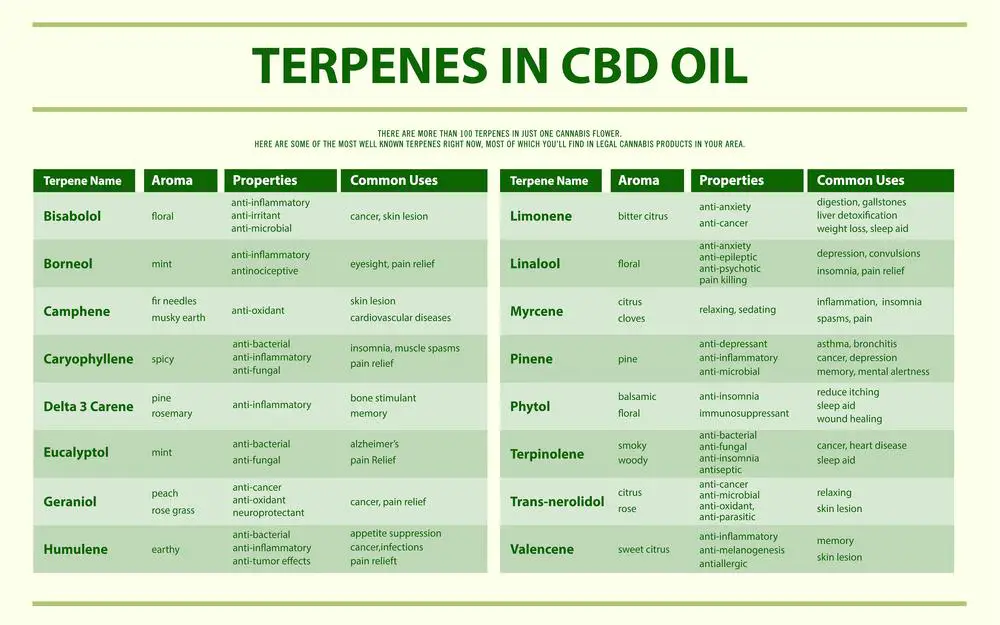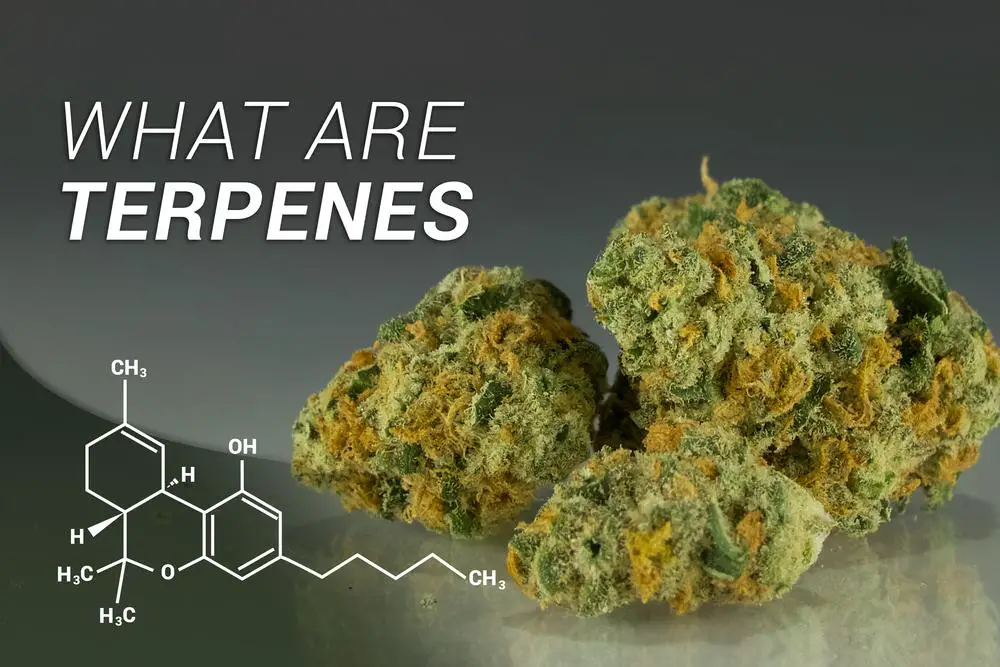As a BetterHelp affiliate, we receive compensation from BetterHelp if you purchase products or services through the links provided
Stress is a prevalent and often unavoidable facet of life, impacting our mood, health, and overall well-being in various ways. While there are numerous strategies for managing stress, including exercise, meditation, and therapy, some individuals might find relief in natural compounds known as terpenes.
This blog post will explore the most common terpenes for stress relief, such as myrcene, linalool, limonene, and eucalyptol.
Understanding Terpenes
Terpenes are aromatic compounds responsible for plants’ and animals’ distinct smells and flavors. They are prevalent in various sources, including cannabis, citrus fruits, lavender, and rosemary. Terpenes contribute to these organisms’ sensory characteristics and play essential roles in their biological functions. They can protect against predators, attract pollinators, and influence growth and development.
Inhaling or absorbing terpenes can also lead to interactions with the human body and mind. Terpenes can impact the endocannabinoid system, which regulates physiological and psychological processes like pain perception, mood, memory, and stress response.
Furthermore, some terpenes might influence other stress-related neurotransmitters and hormones, such as serotonin, dopamine, and cortisol.
It is worth noting that while terpenes may offer potential benefits for stress relief, our understanding of their effects remains incomplete. Depending on factors like dosage, method of use, and terpene combinations, these effects may vary among individuals. More research is needed to confirm the safety and effectiveness of terpenes for stress relief and to elucidate the underlying mechanisms. Therefore, using terpenes cautiously and consulting with a qualified healthcare professional is advisable.
If you want to explore different terpene profiles and flavors, you can check out the products from True Blue here.

The Most Common Terpenes Used for Stress Relief
Myrcene
One of the most common terpenes is myrcene, present in cannabis plants, hops, mangoes, herbs, and spices. Known for its musky, earthy scent, accented with fruity and spicy notes, myrcene is often linked to the sedative “couchlock” effect in certain cannabis chemovars, typically those labeled as “indica” strains.
For stress relief, you might try myrcene-rich essential oils for aromatherapy, vape high-myrcene cannabis strains, or use creams and balms that include myrcene.
Linalool
Another prevalent terpene, linalool, is found in cannabis, lavender, mint, rosewood, and other herbs and flowers. It’s appreciated for its floral and sweet aroma with a touch of spice. Often used in perfumes and cosmetics, linalool is celebrated for its relaxing, soothing, and stress-relieving properties.
Incorporating linalool into your routine can involve using linalool-rich essential oils for aromatherapy, vaping cannabis strains high in linalool, or applying creams and lotions infused with this terpene to help with inflammation, pain, and tension.
Limonene
Next, we have limonene, notable for its vibrant citrus scent. It’s mainly found in lemon peels, oranges, limes, and grapefruits and is a common component in various cannabis strains. Limonene is valued for its potential health benefits, such as anti-inflammatory, antioxidant, and anticancer properties.
To benefit from limonene, consider using citrus-scented essential oils in aromatherapy, vaping cannabis strains rich in limonene, or applying limonene-infused creams and balms for anti-anxiety effects and to reduce inflammation, pain, and tension.
Eucalyptol
Lastly, eucalyptol or cineol, primarily found in eucalyptus, emits a minty, refreshing aroma. It’s also present in cannabis, rosemary, bay leaves, sage, and basil. Eucalyptol is frequently used in flavorings and fragrances and as an ingredient in respiratory and oral health products.
To use eucalyptol for stress relief, you could turn to eucalyptol-rich essential oils for aromatherapy, vape cannabis strains high in eucalyptol for bronchodilation and antibacterial effects, or apply creams and balms containing eucalyptol to alleviate inflammation, pain, and potential infections.
In conclusion, terpenes may offer potential benefits for stress relief, but more research is needed to understand their effects and mechanisms fully. Individuals considering terpenes for stress management should exercise caution and consult a qualified healthcare professional.
- 3 Ways Wearing a Hat Can Help Lower Your Stress Levels - April 19, 2025
- Breaking the Silence: Why Men’s Mental Health Matters More Than Ever - April 15, 2025
- How to Transform a Home’s Patio Space into a Relaxing Space - March 23, 2025
This site contains affiliate links to products. We will receive a commission for purchases made through these links.



